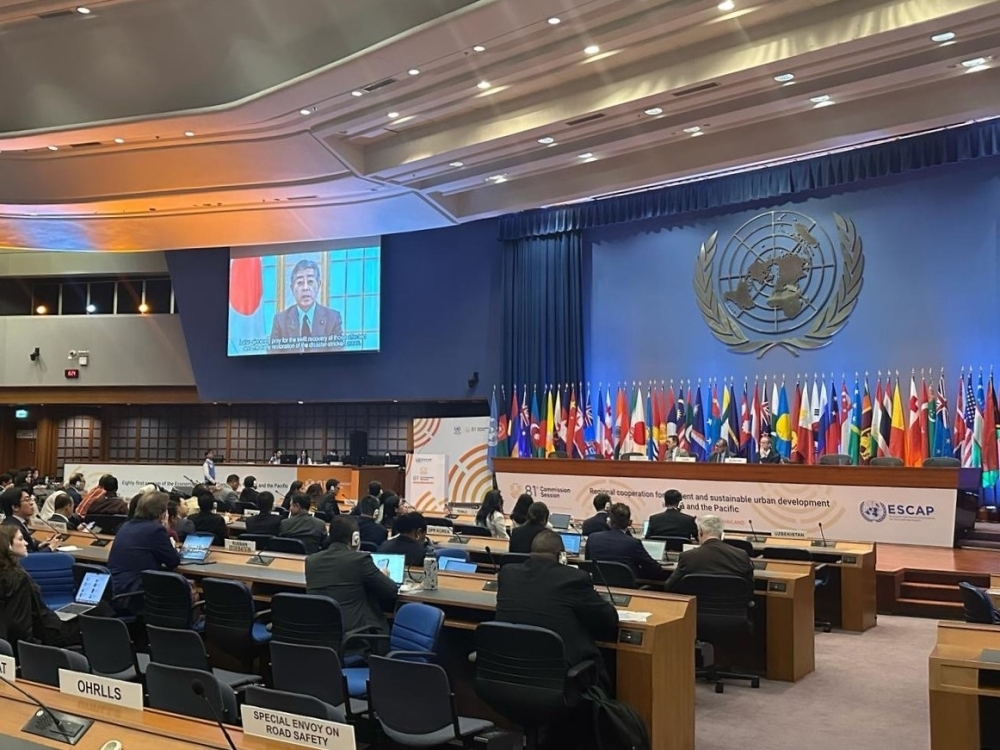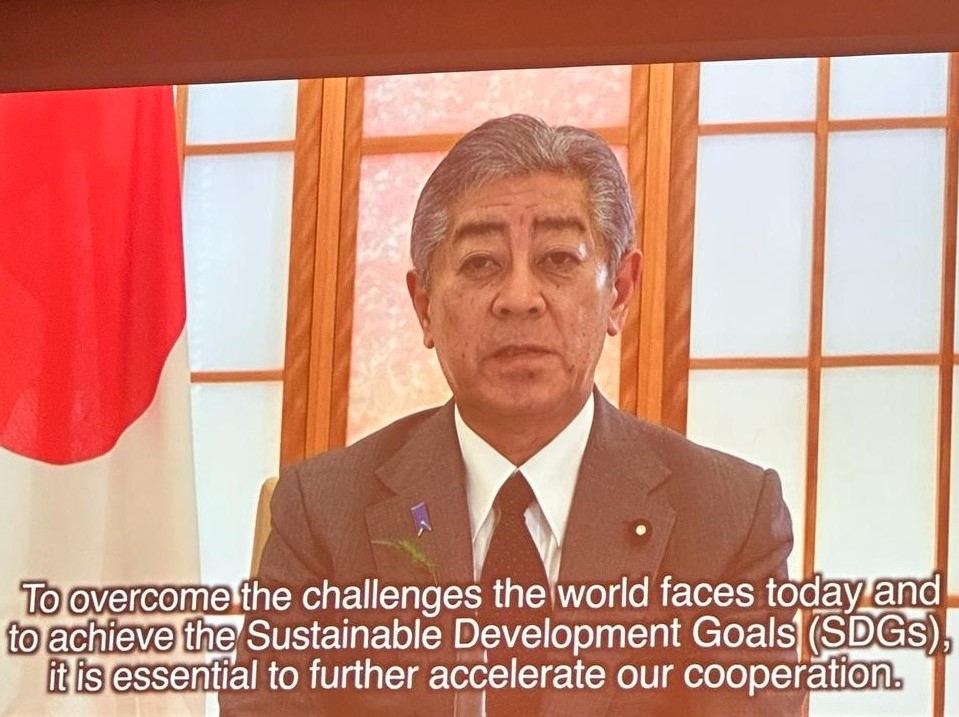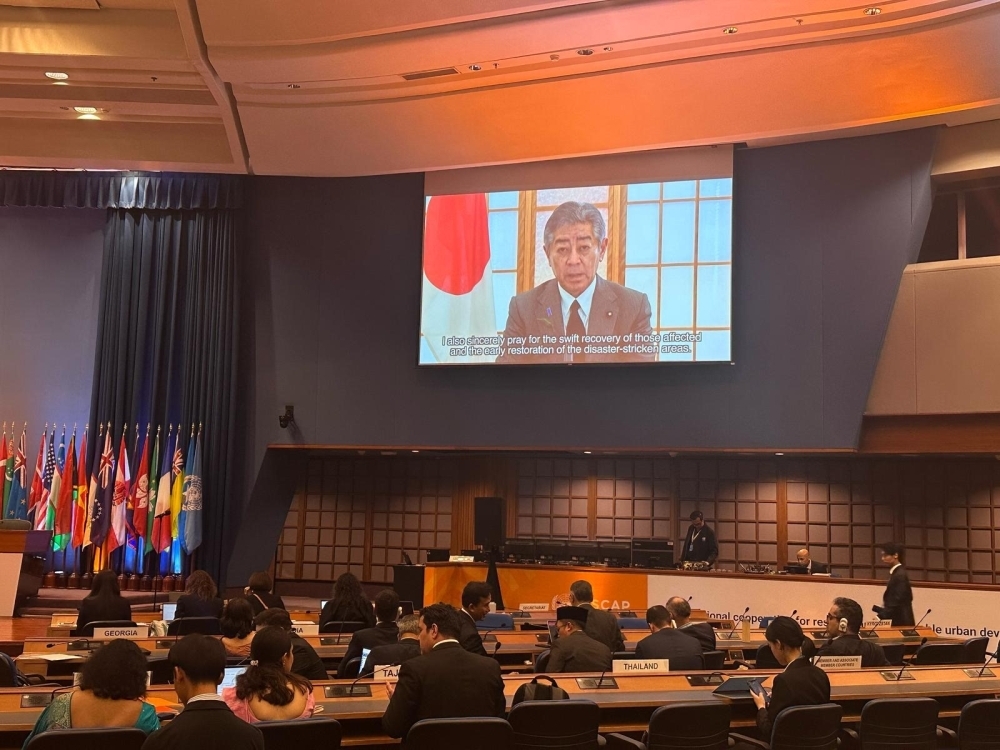Press Releases
Video Message by Mr. IWAYA Takeshi, Minister for Foreign Affairs, at the 81st Session of the United Nations Economic and Social Commission for Asia and the Pacific (ESCAP)



On April 21, Mr. IWAYA Takeshi, Minister for Foreign Affairs of Japan, delivered a video message (Japanese / English) on the occasion of the 81st Session of the United Nations Economic and Social Commission for Asia and the Pacific (ESCAP) being held in Bangkok, Thailand. The outline of the message is as follows:
- I would like to express my deepest condolences to those who lost their lives and to their bereaved families due to the earthquake that struck central Myanmar on March 28. I also sincerely pray for the swift recovery of those affected and the early restoration of the disaster-stricken areas.
- ESCAP has played an important role as a platform for knowledge sharing and capacity building in the Asia-Pacific region. As various social challenges — such as natural disasters, environmental issues, and the declining birthrate coupled with an aging population — become increasingly severe, and the international order grows more unstable, its role is becoming ever more vital. Japan actively supports ESCAP’s efforts to strengthen the region’s ability to address these challenges. For example, the United Nations Statistical Institute for Asia and the Pacific (SIAP) has provided training to government officials from 190 countries and regions, contributing to the development of human resources in the field of statistics.
- The concept of human security has been a cornerstone of Japan’s approach and Japan have implemented various domestic initiatives, including strengthening national resilience for disaster risk reduction, implementing pollution control measures, and developing social security systems to respond to a declining birthrate and an aging population. We are confident that Japan’s experience and expertise can contribute to solving the diverse challenges faced by the Asia-Pacific region.
- To achieve the Sustainable Development Goals (SDGs), it is essential to further accelerate our cooperation and Japan is committed to taking the lead in meeting this challenge. This year, the Government of Japan is advancing its “Voluntary National Review (VNR)” on the SDGs with the cooperation of a wide range of stakeholders, including the business community, local governments, civil society, and young people. Through this review, Japan aims to actively share its knowledge and experience with the international community.
- Japan will continue to work closely with ESCAP and further contribute to knowledge sharing in the Asia-Pacific region, as well as to capacity building in countries across the region.
(Reference1)Video Message Scripts
Minister IWAYA’s Video Message Scripts in English(PDF) and Japanese(PDF)
and Japanese(PDF)
(Reference2)United Nations Economic and Social Commission for Asia and the Pacific (ESCAP)
Established in 1947 as the United Nations Economic Commission for Asia and the Far East (ECAFE), one of five regional commissions of the United Nations Economic and Social Council. Renamed ESCAP in 1974. Currently, 62 countries and regions are members. Japan joined in 1954. ESCAP is a cooperative organization for economic and social development in the Asia-Pacific region, aiming to strengthen economic relations within and beyond the region. In recent years, it has led regional economic and technical cooperation efforts to address the challenges of the "2030 Agenda for Sustainable Development."
(Reference3)United Nations Statistical Institute for Asia and the Pacific(SIAP)
Established in 1970 with the aim of providing practical, hands-on statistical training for government officials/statisticians from developing countries in the region, it is one of the five regional institutions of ESCAP. Located in Makuhari, Chiba Prefecture, it offers a wide range of courses, including training related to monitoring the Sustainable Development Goals (SDGs).

